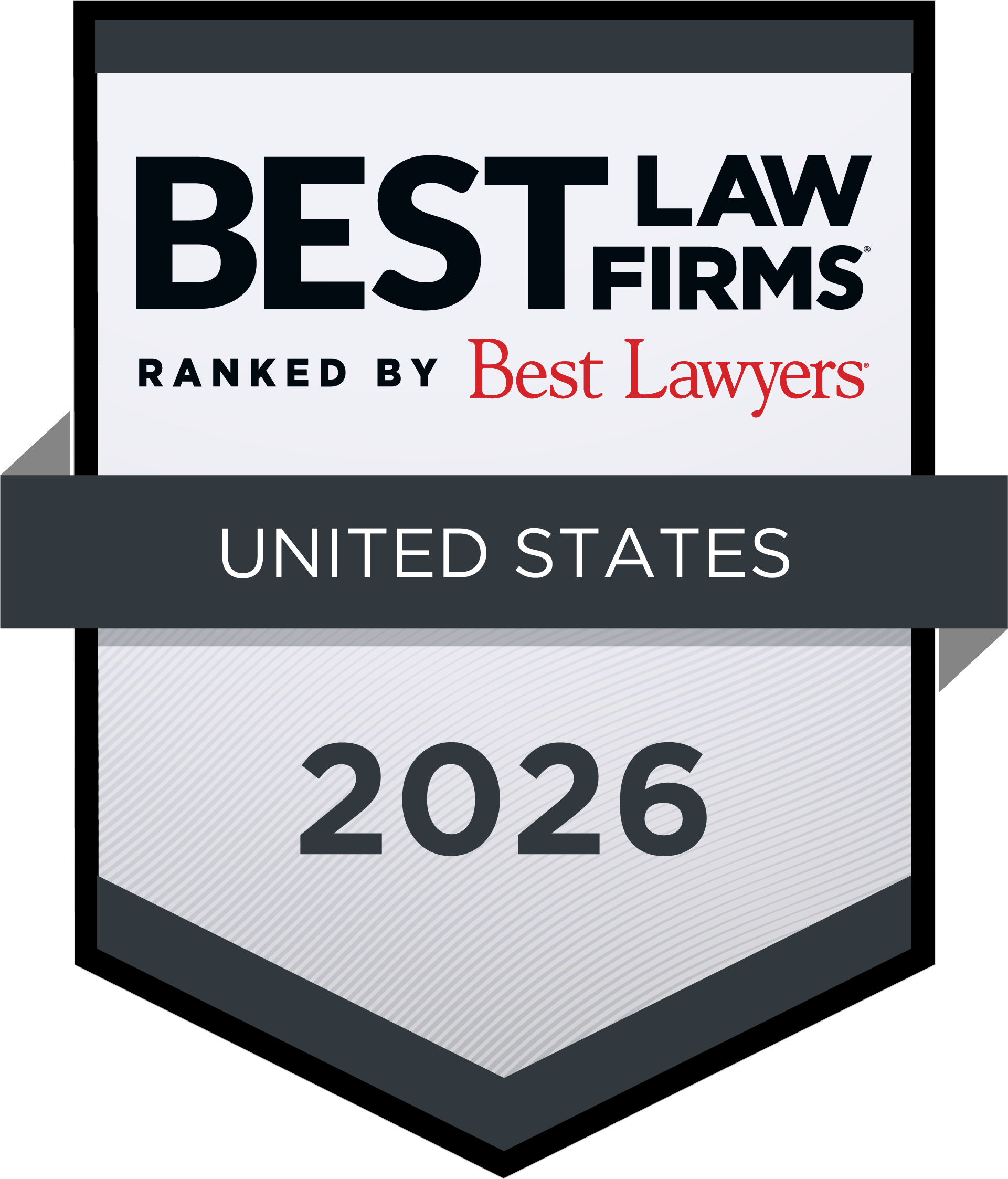

By: Nicole M. Danner, Esq. and Robert C.F. Willson, Esq.
This article explores legal challenges in nonprofit formation and governance, focusing on the importance of sound board management practices and conflict of interest safeguards. For attorneys advising nonprofits—or those serving on nonprofit boards themselves—understanding these issues is essential to equip them to better navigate the complexities of nonprofit law and help ensure the organization remains compliant, effective, and mission-driven.
What is a nonprofit organization? A nonprofit is an organization that, instead of being created for monetary profit like its for-profit counterpart (in fact, distribution of profits to its stakeholders is prohibited), is mission-driven seeking to provide charitable, educational, or other such activities that serve the public benefit. Often nonprofits step in to fill gaps where government services fall short, easing the burden on the government to provide these services.
Forming and governing a nonprofit involves more than just filing paperwork and assembling the board. While the mission to serve the public good inspires many founders, the legal and operational complexities of nonprofit formation and governance are often underestimated. Pennsylvania nonprofits, like those nationwide, face potential pitfalls that can threaten their tax-exempt status, expose board members to personal liability, and undermine public trust. A well-run nonprofit starts with being set up the right way, and then, year after year, operates in compliance with state and federal laws.
Challenges stem from issues in board management and conflict of interest oversight. Boards serve as the legal stewards of the organization’s mission and resources, tasked with fiduciary duties that require careful attention and adherence to both state and federal law. Failure to clearly define board roles, maintain robust governance policies, or enforce conflict of interest rules can lead to internal discord, regulatory scrutiny, and, in worst cases, organizational failure.
Form First
It’s important to start off right, since the legal structure chosen impacts the nonprofit’s operations, tax status, liability protection, governance, compliance obligations and funding opportunities. Choosing the right form helps align with the mission and supports long-term sustainability. Legal counsel should guide founders through these decisions to ensure a strong foundation for growth and accountability.
Many nonprofits opt to incorporate as nonprofit corporations, a structure that supports eligibility for IRS 501(c)(3) tax-exempt status and provides certain liability protection for directors and officers. A formal corporate structure also enhances governance by providing clear fiduciary duties and boosting creditability with donors, regulators and grantmakers. Unincorporated associations may lack the same legal safeguards, governance standards, and access to institutional funding.
Obtaining and maintaining tax-exempt status is another area ripe with potential pitfalls for organizations. Not all nonprofits are automatically tax-exempt; while certain organizations qualify by default and are not required to file IRS Form 1023 (the application for tax-exempt recognition), doing so can offer strategic advantages. An IRS determination letter provides formal recognition, enhancing credibility with donors, grantmakers and state regulators. However, the application process requires detailed disclosures, incurs administrative costs, and may invite heightened IRS scrutiny. Organizations should carefully assess whether the benefits of official recognition outweigh the desire for operational privacy and a lower regulatory burden, based on their mission, structure and fundraising goals.
For those that do obtain recognition under Section 501(c)(3) of the Internal Revenue Code—the most common type of tax-exempt status—the benefits can be significant: federal income tax exemption, eligibility to receive tax-deductible donations, and increased creditability with donors, donor-advised funds, grantmakers and the general public.
However, while tax-exempt status offers advantages, both obtaining and maintaining it present legal and operational challenges. One common misstep during formation is failing to structure the organization exclusively for a qualifying exempt purpose under 501(c)(3). In addition, incomplete or inadequate governing documents, or insufficient detail in IRS Form 1023, can lead to delays or denial of tax-exempt recognition.
Once granted, tax-exempt status under 501(c)(3) requires ongoing compliance with IRS regulations. Common risks include excessive lobbying, prohibited political activity, and the generation of significant unrelated business income without proper reporting. Repeated or willful noncompliance can lead to penalties or even revocation of tax-exempt status. A central compliance obligation is the accurate and timely filing of the IRS Form 990 series, the primary informational return for most tax-exempt organizations. More than a tax filing, Form 990 serves as a transparency and governance tool, requiring clear disclosure of financial data, compensation, and related-party transactions. Inaccuracies or omissions may prompt IRS scrutiny and erode donor trust. Oversight by knowledgeable staff and legal or financial advisers is imperative.
Nonprofits must also follow strict rules against private inurement and conflicts of interest—using assets or income to benefit insiders can jeopardize tax-exempt status. Ensuring proper board and staff compensation, transparent practices, and avoiding insider benefit require active board oversight, strong governance, and periodic legal and financial review to protect the organization’s integrity and compliance.
Govern Wisely
After forming a nonprofit, simply appointing a few people to the “board” is not enough.
Ensuring the nonprofit not only runs smoothly but also compliantly falls heavily on the shoulders of the board of directors.
A strong, knowledgeable board is vital to a nonprofit’s compliance and overall success. The board helps guide the mission, oversee operations, and ensure legal and financial compliance. An informed, engaged board is better equipped to handle these duties effectively, while a disengaged, uniformed board can lead to oversight gaps, missed deadlines, and poor decision-making—all of which increase the risk of compliance issues.
Written, regularly updated, governing documents – such as articles of incorporation, bylaws, and policies—form a nonprofit’s foundation and define its mission, structure and decision-making process. Clear, compliant documents support effective governance, protect tax-exempt status and guide operations.
Missing, outdated, or unclear governing documents can lead to board disagreements, delays, and legal risks. Without key policies—like a conflict-of-interest policy—organizations may face threats to their tax-exempt status and damage to their reputation.
Additionally, poor board meeting practices—such as infrequent meetings, lack of quorum, missing or incomplete minutes and ignoring decision-making processes—pose serious legal risks. Inadequate documentation undermines transparency and accountability, risking legal challenges, state law noncompliance and loss of tax-exempt status. Regular, well-documented meetings are essential to fulfill fiduciary duties and maintain compliance. Including a defined parliamentary procedure, like Robert’s Rules of Order, in the organization’s bylaws helps address gaps and resolve ambiguities or inconsistencies within the governing documents.
Importance of Selecting the “Right” Board Members
An effective nonprofit board includes members who contribute time, talent or treasure. A well-rounded board brings diverse expertise, such as in real estate, human resources, insurance, accounting or other areas within the purview of the nonprofit’s mission. It is essential to follow bylaw requirements for board member eligibility and selection to ensure legal compliance, fair governance and transparency. Ignoring these rules can lead to disputes and increase legal risk.
Nonprofits often collaborate with other organizations, volunteers, and board members, which offers clear advantages, but it increases the risk of conflicts of interest. Poorly managed conflicts can violate fiduciary duties, lead to IRS penalties, threaten tax-exempt status and violate state laws. They also damage public trust and invite legal scrutiny. Clear policies, transparent disclosures, and strict enforcement are essential to safeguard the nonprofit’s integrity and compliance.
When board members are also employees or legal counsel, added legal and governance risks arise. Employees can offer valuable insights, but their dual role may create conflicts of interest in compensation, budgeting, and oversight, and may compromise board independence. To reduce risk, nonprofits should enforce their conflict-of-interest policies, require recusals when needed, and maintain a majority of independent, nonstaff directors. Alternatives include inviting staff to meetings for input or limiting board roles to independent contractors. Similarly, attorneys (volunteer or formally engaged) who serve as both board members and legal counsel face ethical challenges, blurring the lines between legal advice and business judgment, raising concerns with conflicts of interest, attorney-client privilege and fiduciary duties.
Under Pennsylvania Rules of Professional Conduct, attorneys must avoid conflicts that affect their independent and professional judgment. If a nonprofit engages a board member or their firm for legal services, the relationship must be disclosed, approved by disinterested board members, and clearly documented. It is crucial to distinguish between legal advice and board participation to preserve privilege and avoid liability. To reduce risk, attorneys should give careful consideration to obtaining written engagement letters, recusing themselves from related votes, and ensure independent legal review when needed. Attorneys should consult their professional liability carrier for further guidance.
Monitoring Compliance
Ongoing compliance monitoring is essential to protect a nonprofit’s legal and tax-exempt status. Diligent oversight ensures adherence to laws on reporting, governance, employment, and fundraising. Lapses can lead to penalties, loss of tax exemption, and reputational damage. Proactive compliance fosters transparency, accountability and public trust, helping nonprofits effectively fulfill their missions while minimizing legal risks.
Running an effective, mission-driven nonprofit demands significant time and resources, often leaving organizations vulnerable to compliance issues that can threaten their operations and long-term sustainability. Compliance is more than a checklist—it’s about building a strong foundation and maintaining safeguards to support the mission.
About the authors:
Nicole M. Danner is an associate with Wisler Pearlstine and a member of the firm’s business, corporate, and tax practice group. She focuses her practice in the areas of commercial real estate and financing transactions, as well as business structuring and formation, commercial contracting, data privacy and security, corporate governance, emerging regulatory issues and risk avoidance and other general business needs.
Robert C.F. Willson is a partner with the firm and a member of the business, corporate, and tax practice group. He concentrates his practice in business transactions, construction and design matters, and commercial and residential real estate transactions. He also represents nonprofit organizations; sports leagues and sporting facilities, restaurateurs, franchisors and franchisees; automobile dealerships and repair facilities, landowners, farmers, and land conservation entities.







